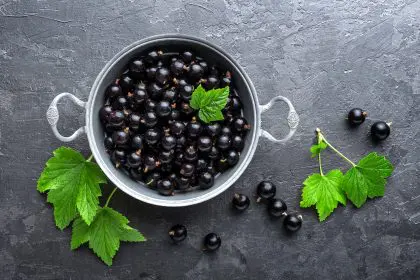A groundbreaking five-year study has revealed the remarkable power of fruits and vegetables in combating hypertension and protecting kidney function, potentially transforming our approach to cardiovascular health. Published in The American Journal of Medicine, this research demonstrates how simple dietary changes can enhance traditional medical treatments for high blood pressure, offering a promising alternative to relying solely on medications.
Understanding the health connection
Hypertension, or high blood pressure, is a widespread condition that affects millions of people worldwide. However, its connection to kidney health is often overlooked. High blood pressure places significant strain on the kidneys, increasing the risk of kidney disease. The intricate relationship between these two vital functions creates a health axis that demands attention. The study underscores the potential of dietary interventions to significantly influence this connection, offering new hope for individuals managing hypertension and kidney concerns. Through diet, the effects of hypertension on the kidneys can be reduced, providing a natural pathway to better health.
The science of natural prevention
Recent findings from the study show that increasing fruit and vegetable consumption by just 2-4 cups per day can produce measurable improvements in cardiovascular health markers. This dietary change works through several pathways, one of which is the regulation of blood pH levels. The benefits of consuming a greater quantity of plant-based foods extend beyond just lowering blood pressure. Research indicates that the nutrients found in fruits and vegetables, such as potassium, fiber, and antioxidants, help regulate bodily systems and improve overall cardiovascular health. These nutrients play key roles in reducing inflammation, promoting healthy blood vessel function, and improving blood flow—all of which contribute to a decrease in hypertension.
Moreover, fruits and vegetables are rich in compounds that influence nitric oxide production, a molecule that helps relax blood vessels and improve circulation. This, in turn, contributes to lowering blood pressure, which benefits the kidneys by reducing their workload. The study demonstrates that what we eat is just as crucial as prescribed medications in combating hypertension and supporting kidney function.
pH balance and kidney protection
A critical finding of the study was the alkalizing effect of fruits and vegetables on the body, which plays a vital role in protecting kidney health. The modern Western diet, often high in processed foods and animal products, creates an acidic environment in the body. This acidic state can be detrimental to kidney function, as it puts additional stress on the kidneys to maintain a balanced pH. In contrast, the consumption of fruits and vegetables helps maintain the body’s natural alkaline balance, which in turn supports kidney health by reducing this burden.
Fruits and vegetables, especially those rich in potassium, such as bananas, spinach, and sweet potatoes, help buffer excess acids in the body. By neutralizing acids, these foods contribute to preventing kidney damage and promoting healthier kidney function over time. The study suggests that making this dietary adjustment can have long-term benefits for kidney health, particularly for individuals at risk of developing chronic kidney disease due to hypertension.
Optimal implementation strategies
To successfully manage blood pressure and protect kidney function through diet, it is crucial to implement evidence-based strategies that incorporate a variety of fruits and vegetables. One such approach is the DASH (Dietary Approaches to Stop Hypertension) diet, which emphasizes the intake of plant-based foods, low-fat dairy, lean proteins, and whole grains. The DASH diet has been widely recommended for lowering blood pressure and improving overall cardiovascular health.
By following the DASH diet framework, individuals can enjoy a balanced approach to hypertension management while also reducing their risk of kidney damage. The strategy encourages increasing daily fruit and vegetable intake while simultaneously cutting back on sodium, added sugars, and unhealthy fats. This combination of nutrient-rich foods and reduced intake of harmful substances offers a comprehensive strategy for combating hypertension and protecting kidney function.
In addition to the DASH diet, the study suggests a gradual increase in fruit and vegetable consumption, making it a more sustainable lifestyle change. Starting with small adjustments, such as adding an extra serving of vegetables to lunch or incorporating more fruit into breakfast, can help individuals transition toward a healthier diet over time. The goal is to integrate these nutrient-dense foods into daily meals in a way that feels natural and enjoyable, ensuring long-term adherence to healthier eating habits.
Clinical evidence and outcomes
The clinical evidence gathered in this study demonstrates that dietary changes can significantly enhance the effectiveness of conventional treatments for hypertension. Research shows that combining a plant-based diet with medications can yield superior results compared to using medication alone. In many cases, individuals who adopted a diet rich in fruits and vegetables saw a reduction in their blood pressure levels, allowing them to rely less on pharmaceutical interventions.
This synergistic approach offers new possibilities for managing chronic health conditions like hypertension and kidney disease. By incorporating dietary interventions, patients not only improve their cardiovascular health but also reduce the risk of kidney damage caused by high blood pressure. For those already managing hypertension with medications, increasing fruit and vegetable intake can provide an additional layer of support, promoting a more holistic and sustainable approach to health.
Looking ahead
As research into the role of diet in managing hypertension and kidney function continues, the potential for dietary interventions to complement traditional treatments becomes increasingly clear. The findings from this groundbreaking study open the door to new possibilities for improving public health, particularly for those at risk of hypertension-related kidney disease. While fruits and vegetables alone cannot replace medications, their role in supporting cardiovascular and kidney health is undeniable. By making simple changes to our daily diets, we can take proactive steps toward better health and a brighter future, one meal at a time.

















